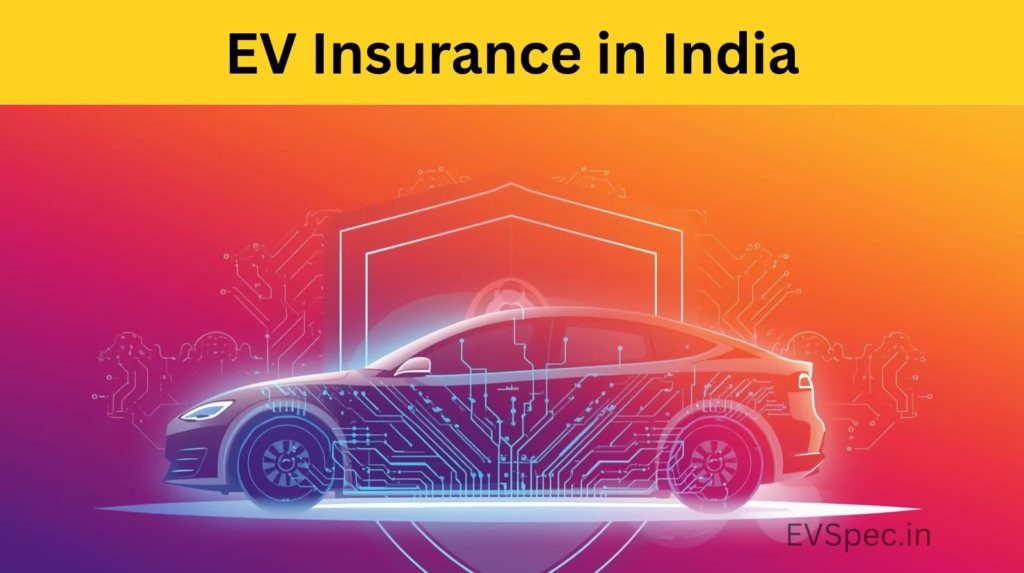
EV Insurance in India: The Comprehensive Guide for 2025
As electric vehicles rapidly become a common sight on Indian roads, EV owners need to understand how insurance works for their eco-friendly cars. Insuring an EV involves unique considerations, battery coverage, specialized add-ons, and evolving regulations. This guide answers everything you need to know about buying, renewing, and optimizing EV insurance in India, so you can drive electric with true peace of mind.
What Makes EV Insurance Different from Regular Car Policies?
While insurance is mandatory for all vehicles in India, electric vehicle (EV) insurance takes a specialized approach. Major differences include:
- Battery Coverage: Protects your most valuable (and expensive) EV component.
- Specialized Add-ons: Covers charging equipment, wiring, and even roadside battery assistance.
- Repair & Parts Coverage: Covers high-voltage systems and specialized EV car parts.
Types of EV Insurance Policies in India
- Third-Party EV Insurance
– Legally required for all vehicles; covers claims if your EV injures a person or damages property.
– Does NOT pay for your own EV’s repairs or theft. - Comprehensive EV Insurance
– Combines mandatory third-party liability plus own-damage cover (accidents, theft, fire, natural disasters, etc.).
– Lets you add protection for battery, motor, and charging accessories.
Tip: Always opt for comprehensive cover to protect your EV’s high-value components and new-age spare parts.
Key Factors Affecting EV Insurance Premiums
- Battery Capacity: Higher kWh means a higher insurance premium bracket.
- Vehicle Value (IDV): The insured value is based on model, age, and market price.
- Repair Costs & Parts: EV spare parts, especially batteries and motors, are relatively expensive to replace.
- Location: Cities with more EV adoption can see cheaper premiums and better service networks.
- Past Claims and Add-Ons: Your claim history, along with optional protection add-ons, will impact price.
Current 1-Year Third-Party EV Premiums (2025 IRDAI)
| Battery Size | Premium (1 year) |
| Up to 30 kW | ₹1,780 |
| 30–65 kW | ₹2,904 |
| More than 65 kW | ₹6,712 |
How to Buy Electric Car Insurance Online in India
- Get Your Registration Details:
Have your EV’s RC, model, and battery details handy. - Visit Reputed Insurer Websites:
Tata AIG, HDFC ERGO, ICICI Lombard, Digit, Bajaj Allianz, SBI General, Acko, Future Generali, Reliance, and others now all offer EV-focused insurance plans. - Choose the Right Plan:
Decide between third-party only or comprehensive (recommended). Select the right IDV and review available add-ons (battery cover, zero depreciation, roadside assistance). - Get Quotes & Compare:
Use comparison platforms or insurer calculators for indicative premiums. - Pay & Get Instant Policy:
Online issuance is instant—your policy is emailed and accessible digitally.
Pro-Tip: Check claim settlement ratio and “cashless garage” network, as specialized service is essential for EVs in case of damage.
Which Add-Ons and Riders Are Useful for EV Insurance?
- Battery Protection Cover: For accidental, fire, water, or theft damage to battery.
- Charging Accessories Cover: Includes home charger, travel charging cable, wall box, etc.
- Zero Depreciation Cover: Full coverage on car parts without depreciation deduction during claims.
- Consumables Coverage: For fluids, filters, or lubricants unique to EVs.
- Return to Invoice: Pays the full invoice value (not depreciated value) if the car is a total loss.
Cost Breakdown: Why is EV Insurance More Expensive?
- Upfront Car Cost: EVs are about 15–30% pricier at purchase, increasing IDV and, hence, premium.
- Parts and Battery Cost: Replacing batteries or specialized motor/inverter parts can cost lakhs; insurers factor this into premiums.
- Repair Network: Fewer certified garages and skilled technicians raise claim costs and turnaround times, affecting premium rates.
- Discounts: EVs get IRDAI-mandated 15% third-party premium discount, but own-damage coverage remains costly due to unique parts and tech.
Renewing EV Insurance
Renewals can be done online in just a few clicks with all major insurers. Review offers every year, update your IDV according to depreciation, and add/remove riders as per your changing needs. Timely renewal avoids inspection hassles and keeps you compliant with Indian law.
Best EV Insurance Companies in India (2025)
- Tata AIG
- HDFC ERGO
- ICICI Lombard
- Bajaj Allianz
- Digit Insurance
- Acko General Insurance
- SBI General Insurance
- Reliance General Insurance
- Future Generali
- New India Assurance
All these companies offer both third-party and comprehensive plans tailor-made for EVs, with top add-ons available.
Top Tips for Getting the Best EV Insurance Deal
- Compare multiple insurers online every renewal.
- Opt for comprehensive cover with at least battery and cable protection.
- Check cashless garage network for EV-ready workshops in your city.
- Ask about claim settlement process—quick, digital processes save you time if there’s a problem.
- Check for new state EV policy updates that may impact insurance costs or offer extra benefits.
Conclusion
Securing the right insurance for your electric vehicle is a smart step in protecting your asset, your finances, and your peace of mind. As the EV ecosystem in India matures, insurance products will become even more competitive and tailored. Compare plans, understand your actual needs, and review best-in-class insurers to make sure your EV ownership is safe and worry-free.
Frequently Asked Questions (FAQs)
Is insurance mandatory for electric cars in India?
Yes, you must have at least third-party insurance for any vehicle—including EVs—to drive legally.
Does comprehensive insurance cover battery damage in EVs?
Only if you select a plan/add-on with specific battery coverage. Check your inclusions carefully.
Are EV insurance premiums more costly than regular car insurance?
Usually yes, since EVs have higher purchase prices and expensive battery/motor parts.
What documents are needed for EV insurance?
Car registration (RC), ID proof, purchase invoice (for new policies), and prior policy details (if renewing).
Do all insurers offer EV-specific add-ons?
Leading insurers now provide battery, charger, zero depreciation, and other EV-specific riders, always ask your provider what’s included.